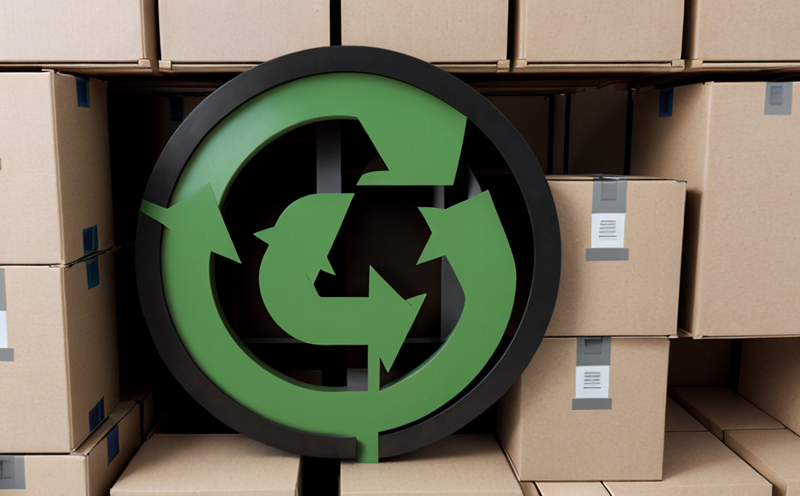ISO 50001 Energy Management Systems in Recycling Facilities
The International Organization for Standardization (ISO) has developed ISO 50001 as a guideline for organizations to implement an energy management system (EMS). This standard focuses on optimizing resource use, reducing waste, and achieving sustainable development. In the context of recycling facilities, adopting ISO 50001 can help streamline operations, enhance efficiency, and ensure compliance with global sustainability goals.
Recycling facilities generate a significant amount of energy through various processes such as sorting, processing, and reprocessing materials. By implementing an EMS based on ISO 50001, these facilities can identify opportunities for improving their operational processes to minimize waste and optimize resource utilization. This not only leads to cost savings but also contributes positively towards environmental protection.
The standard encourages continuous improvement in energy efficiency by setting measurable targets and objectives. It provides a framework that enables facility managers to monitor performance over time, ensuring they stay on track with their sustainability goals. Moreover, adhering to ISO 50001 helps recycling facilities align themselves with international best practices, making it easier for them to meet regulatory requirements.
Implementing an EMS according to ISO 50001 involves several key steps including establishing a policy, defining responsibilities within the organization, setting goals and targets related to energy use, implementing measures aimed at achieving these targets, reviewing performance regularly, and taking corrective actions where necessary. These steps ensure that all aspects of energy management are covered comprehensively.
For quality managers, compliance officers, R&D engineers, and procurement professionals involved in managing recycling facilities, understanding how ISO 50001 aligns with their roles is crucial. Quality managers will benefit from the structured approach provided by the standard which ensures consistent quality across different stages of production. Compliance officers can leverage this framework to ensure that all activities related to energy management comply with relevant regulations and standards.
R&D engineers can use ISO 50001 as a guide when developing new technologies or processes intended for improving efficiency in recycling facilities. By following the principles outlined in the standard, they can design systems that are not only efficient but also environmentally friendly. For procurement personnel, adopting an EMS based on ISO 50001 allows them to source materials and equipment that meet strict energy performance criteria.
In summary, implementing an energy management system according to ISO 50001 offers numerous benefits for recycling facilities operating in today’s competitive market place. From cost savings through improved operational efficiency to enhanced reputation among stakeholders, there are many reasons why organizations should consider this approach when managing their resources sustainably.
Applied Standards
The ISO 50001 standard provides a framework for developing and implementing an energy management system (EMS). This EMS helps organizations to reduce energy consumption, lower costs, improve resource utilization, enhance operational efficiency, and meet regulatory requirements. The application of this standard in recycling facilities focuses on optimizing the use of various resources such as water, electricity, fuel, etc., while minimizing waste generation.
- Energy Efficiency: ISO 50001 emphasizes continuous improvement in energy efficiency through setting measurable targets and objectives. By tracking key performance indicators (KPIs), facilities can identify areas where further optimization is needed.
- Sustainability Goals: The standard encourages the establishment of sustainability goals that align with broader corporate strategies. These goals often include reducing greenhouse gas emissions, increasing renewable energy usage, and improving overall environmental impact.
- Regulatory Compliance: Adhering to ISO 50001 ensures compliance with local and international regulations governing energy management practices. This includes meeting criteria specified in laws such as the EU’s Ecodesign Directive or US Energy Star program requirements.
The application of these standards can significantly contribute towards achieving a circular economy, where waste is minimized and resources are reused effectively within closed loops rather than being discarded after single use.
Eurolab Advantages
At Eurolab, we offer comprehensive services tailored specifically to the needs of recycling facilities seeking to implement ISO 50001 compliant energy management systems. Our team comprises highly experienced professionals who understand both the technical aspects and business implications involved in this transition.
- Expert Guidance: With years of experience working with similar clients across various industries, our experts provide customized advice on implementing an effective EMS. This includes conducting audits to assess current energy usage patterns and identifying potential improvements.
- Comprehensive Training: We offer training sessions for staff members responsible for managing the facility’s EMS. These sessions cover everything from understanding the requirements of ISO 50001 to practical implementation techniques. Our goal is to ensure that everyone involved has a clear understanding of their roles and responsibilities.
- Support Throughout Implementation: Transitioning to an ISO 50001 compliant EMS can be complex; therefore, our support extends beyond just initial consultations. We continue assisting throughout the entire implementation process ensuring smooth progress towards certification.
- Dedicated Resources: Recognizing that each facility has unique characteristics, we allocate dedicated resources specifically for your project. This ensures that no stone is left unturned in achieving success.
In addition to providing technical expertise and guidance, Eurolab also offers additional value-added services such as assistance with writing EMS documentation, helping develop energy plans, facilitating stakeholder engagement, etc., all aimed at supporting our clients’ journey towards becoming more sustainable organizations committed to reducing their environmental footprint.





